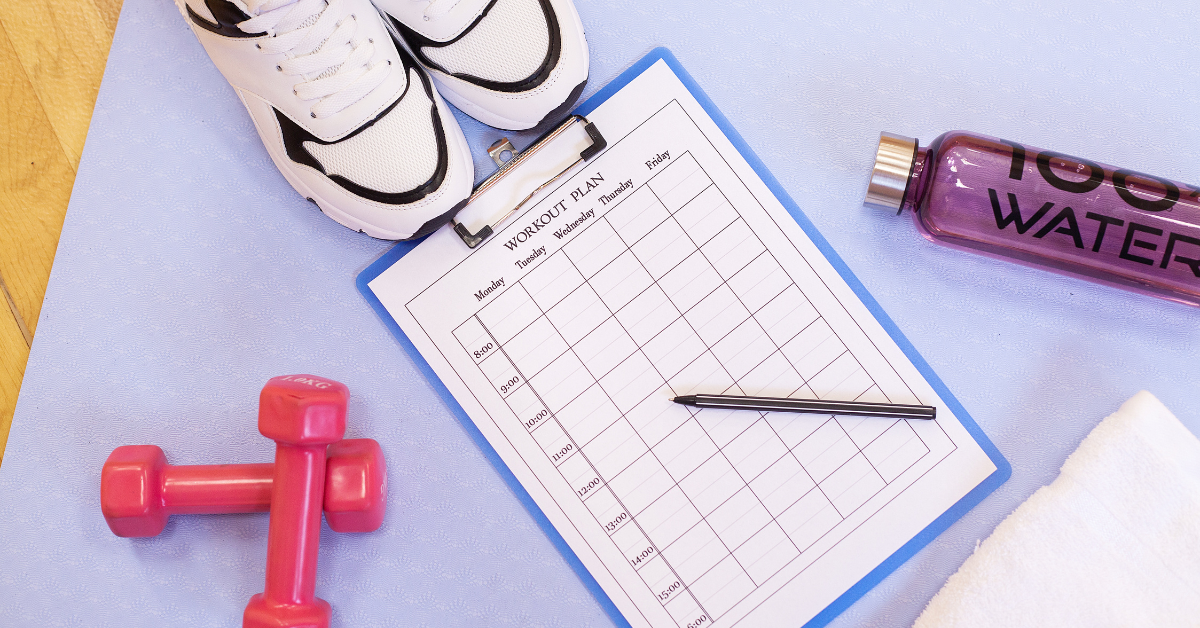Investing in you health pension – part 3 – Optimizing your Nutrition
Hello! Welcome to part 3 of our Investing in your Health Pension blog series. In this post, we’re delving into the crucial subject of nutrition, an integral part of maintaining and enhancing your health.
The food you consume directly influences your body composition and energy levels, making it an indispensable aspect of your health pension plan.
However, the vast sea of information on the internet can make navigating the world of nutrition feel like sailing through stormy waters. There’s a myriad of conflicting advice, trendy diets, and unverified claims that can leave you feeling overwhelmed and unsure of where to turn.
This confusion often leads to frustration, causing many to abandon their health aspirations or resort to unhealthy, unsustainable practices. But fear not, we’re here to shed light on this complex topic and empower you with the knowledge you need to make informed decisions about your diet.
In this blog post, we’ll unpack the concept of nutrition and provide clear, reliable guidance to help you achieve your health objectives. We’ll kick things off by addressing three fundamental questions that will steer your understanding of nutrition.
By the end of this post, you’ll have a robust foundation for making educated choices about your diet and nutrition as you stride confidently towards investing in your health pension. Enjoy the journey!
In this blog, we’ll be looking at the following:
– The 3 Key Questions of a Nutrition Plan
– #1: Where are my vegetables?
– #2: Where is my protein?
– #3: Do I need carbs?
The 3 Key Questions of a Nutrition Plan
Over the years, we’ve heard from numerous clients and patients that their primary strategy for enhancing health is simply to eat less. It’s a common misconception, largely due to the way diet culture has been promoted over the past few decades.
However, the reality is, you don’t have to restrict your diet severely to feel healthier. Based on our extensive experience coaching clients and decades of research, we’ve discovered that minor adjustments can make a significant difference. These small changes can enable clients to maintain their energy throughout the day and remain committed to their fitness goals.
Moreover, slight modifications to diet and lifestyle can result in benefits like better muscle mass retention, deeper sleep, and overall health improvement. It’s truly remarkable what a few tweaks can achieve!
Eating in a manner that aligns with your goals is crucial. That means crafting meals that are not only nutritious but also delicious and satisfying. Keep in mind that everyone is unique, with different tastes and dietary needs. What works for one person might not necessarily work for another. Some may thrive on six small meals a day, while others might find intermittent fasting beneficial.
Instead of adopting a one-size-fits-all approach, we suggest asking yourself the following three key questions when planning your meals:
- Where are my vegetables?
- Where is my protein?
- Do I need carbs?
Implementing certain strategies can help you feel satiated after eating without resorting to complex programs. These strategies focus more on adding elements to your diet before considering what to reduce.
A well-optimized nutrition plan also plays a crucial role in supporting your body’s recovery from physical activity or injury, which is a key focus of Physiotherapy.
By asking these questions, you’ll likely find your food experiences improving. The best part? You can select behaviors that best fit your lifestyle and preferences using our handy Cheat Sheets.
Now, let’s look into each question…
#1: Where are my vegetables?
Let’s dive into the first question, “Where are my vegetables?” This might sound like familiar advice and for a good reason! Vegetables are powerhouses of micronutrients, including vitamins, minerals, and phytochemicals. These nutrients can contribute significantly to your well-being, regardless of your age.
Vegetables play an essential role in supporting those who exercise regularly in several ways:
Firstly, vegetables are rich in fiber and water, which aid in regular bowel movements. Regularity not only makes you feel better overall but also helps prevent the discomfort of bloating.
Secondly, the fibre in vegetables can slow down digestion and regulate blood sugar levels. This regulation can reduce cravings and keep you feeling satiated longer. By incorporating more vegetables into your meals, you’re not just boosting nutritional value but also helping curb those pesky cravings!
Feeling full can deter overeating between meals. Snacking is fine, of course, but ideally, it should be driven by genuine hunger, not boredom or habit.
If you’re not accustomed to consuming a lot of vegetables, aim to include them in at least two meals every day. A handy tip is to use your fist as a guide for portion size. Start with a fist-sized serving of vegetables at two meals and gradually increase this amount until you’re enjoying one or two fist-sized portions at every meal. For inspiration on how to do this, download our cheat sheet here.
Remember, the goal is to discover foods you genuinely enjoy, which might mean sampling different vegetables until you find your favourites. Our Veggies Cheat Sheet is a fantastic resource for ideas. Happy veggie hunting!
#2: Where is my protein?
Now, let’s address our second key question: “Where is my protein?” As we age, it becomes more challenging for our bodies to digest and utilise protein effectively, making it necessary to increase our daily protein intake.
Protein holds particular significance for those who are active or ageing, as muscle mass tends to decline over time. Consuming sufficient high-quality protein can help preserve our muscle mass as we grow older.
Beyond muscle maintenance, protein offers several other fantastic benefits:
Eating protein-rich foods can keep you satiated for a longer period, reducing your overall food intake and minimizing unnecessary snacking.
Your body works harder to metabolize protein, meaning you burn more calories when consuming protein compared to carbs or fats. This attribute is beneficial if you’re aiming to lose weight.
Proteins, and the amino acids that compose them, are vital for our bodies functions. They contribute to the production of enzymes, hormones, neurotransmitters, and antibodies. Additionally, they assist in repairing old cells and fostering new ones. Hence, without adequate protein, our bodies wouldn’t function optimally.
So, how much protein should one consume? For those looking to enhance their health and sustain it, research suggests consuming 1.2–2 grams of protein per kilogram of body weight, or approximately 0.75 grams per pound of body weight daily. For instance, if you weigh 100 kg, you should aim for 120 grams of protein per day. To find out exactly how much protein you need you can use our protein calculator here.
For most people, this equates to consuming a palm-sized portion of protein at every meal and one or two protein-enriched snacks per day.
Excellent sources of protein include lean meats, fish, eggs, dairy products, tofu, lentils, and beans. The trick is to find protein sources that you enjoy and can easily prepare.
Check out our Protein Cheat Sheet here for more information on protein portions and sources. It’s designed to simplify the process of incorporating more protein into your diet. Let’s make protein your go-to!
#3: Do I need carbs?
Moving on to our third key question: “Do I need carbs?” Consuming the right amount of carbohydrates is crucial for our overall health and well-being, yet it’s something that often slips our minds.
In many cultures, including the UK, carbohydrates form the cornerstone of our diets. They appear frequently in our meals in the form of cereal, bread, pasta, potatoes, and more. However, there isn’t a universal answer to carbohydrate consumption—it largely depends on your daily activity level.
If you lead a sedentary lifestyle, it’s important to adjust your carbohydrate intake accordingly. Being mindful of your daily carb consumption can help ensure you’re getting the necessary vitamins and minerals, while also avoiding potential health risks associated with overconsumption.
While the minimum recommended intake is 130g, an optimal intake might be about 3 grams per kilogram of body weight.
The more active you are, the higher your carbohydrate needs will be. Our bodies use the carbohydrates stored in our muscles for energy, and not replenishing these stores can leave us feeling lethargic, irritable, and fatigued. To further aid in physical recovery and reduce muscle fatigue that can hinder consistency, consider incorporating Sports Massage into your health pension plan.
As a general guideline, for every hour of moderate-intensity exercise (where you can talk but not sing), you’ll need an additional 50g of carbs per day.
It’s also wise to be mindful of ’empty calories from alcohol and fizzy drinks. Alcohol can contain significant ‘hidden’ carbs—there are high amounts of sugar in wine, beer, mixed drinks, and even spirits! Fruit juice, while nutrient-rich, is also calorie-dense. So, it’s important to be aware of your consumption.
As for fizzy drinks, consider opting for a diet variant or even better, replace them entirely with a glass of water or a cup of tea. Remember, moderation is key when it comes to maintaining a balanced diet.
Summary
Creating a Nutrition Plan might seem daunting, but don’t worry! We’ve developed a handy resource to guide you through this sea of information.
This worksheet outlines the key habits you need to cultivate to enhance your nutrition as part of your 28-day Health Pension Plan. Over the next four weeks, you’ll focus on two distinct nutrition behaviors. You’ll find more details in your downloadable guide.
This step is crucial – so don’t skip it!
Nutrition is indeed a vast subject, and it can be challenging to separate fact from fiction. Today, you’ve gained valuable insights into its importance.
For your homework, select a beneficial nutrition practice from the bonus worksheet here. This practice will assist you in your health journey!
Remember: Your nutrition plan is not set in stone. It will evolve over time. These three questions serve as an excellent starting point. Experiment with your nutrition to discover what aligns best with you and your goals. In addition to the guidance provided, incorporating Personal Training into your routine can be a game-changer.
In Part 4, we’ll discuss recovery, focusing on sleep and stress management, and how they contribute to your fitness journey. Looking forward to seeing you then!




